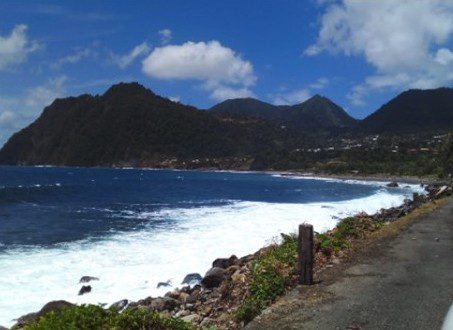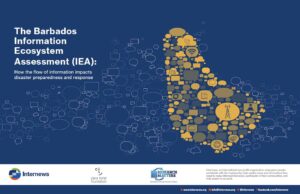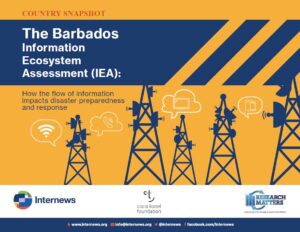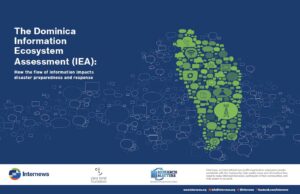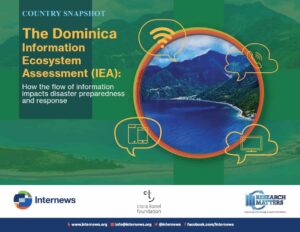How the flow of information impacts disaster preparedness and response
Examples from the islands of Barbados and Dominica
The Caribbean region is vulnerable to many types of natural hazards, including floods and droughts, tropical storms and hurricanes, earthquakes and volcanic events. The threat of hurricanes has been exacerbated by the COVID-19 pandemic and getting the right information can literally mean the difference between life and death. Affected communities need information about the nature of the disaster, level of risk, what services are available, connecting with family and friends etc. Without access to accurate, trusted information, rumors and misinformation can exacerbate a crisis, leading people to make poor decisions and making them more vulnerable.
As part of the Information Saves Lives Pilot, Internews therefore commissioned an IEA in Barbados and Dominica to investigate how the flow of information in vulnerable communities affects residents’ response and readiness to disaster preparedness and the COVID19 pandemic.
An Information Ecosystem Assessment (IEA) seeks to capture all dimensions of the relationship between information supply and information demand. It uses a human- centered research exercise aimed at understanding how people and communities find, share, value, and trust information in their own local contexts, whether it comes from the media or not. In these two focus countries, the methodology used a mix of remotely implemented, quantitative and qualitative data-gathering methodologies including broad information-related questions, focus group discussions and key informant interviews which generated important insights into the socio-cultural dynamics, trends, and nuances of information flow.
